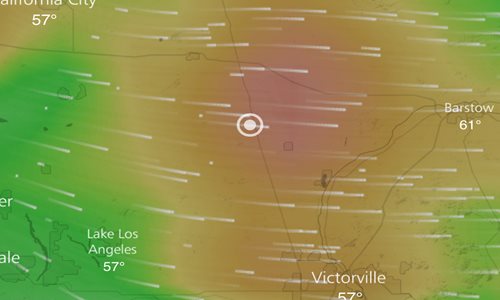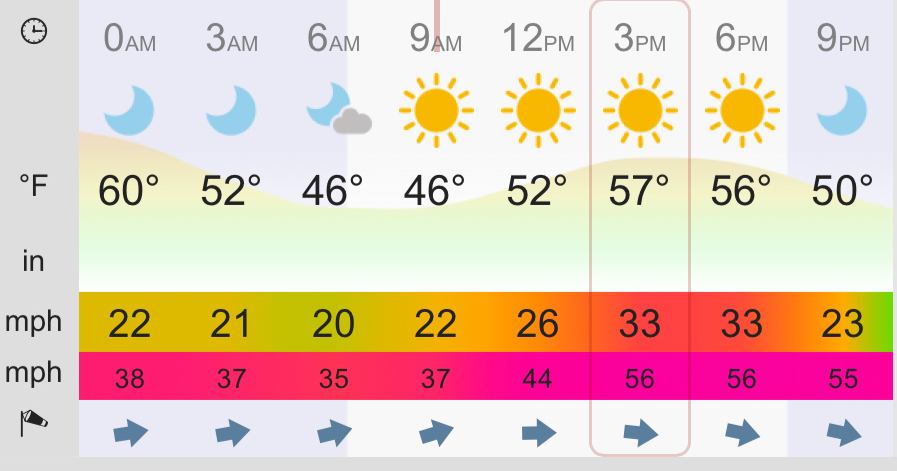Although California is not known for devastating blizzards or much inclement weather for that matter, there is one thing that being near the ocean gives us, which is a fair share of gusty winds. Made famous by the coined term out here, “Santa Ana Winds”, they can be quite treacherous when we transition between low and high-pressure weather systems. I get a lot of people out there saying that our 50mph+ winds are nothing compared to those that sweep across the Great Plains and near the Great Lakes, but nonetheless it is the gusty nature of these winds that come out of nowhere which make them difficult to judge. When push comes to shove and a judgment call has to be made to sit instead of run, it helps to have customers that are willing to work with me to keep the trucks safe and upright.

Of course as the owner, president, and chief cat-wrangler, I ultimately have to make the call on whether to park for safety reasons or not. This is not an easy decision by any means for any owner-operator or fleet operator, mainly for the reason of having to face possible attitude from customers that may not completely understand the gravity of the situation at hand. I recently made a call to sit my own truck and trailer, which resulted in one of my dedicated loads pushing until the following day. Although this is not a commonplace thing for any of my trucks, only typically happening a couple times a year, I was glad to have not faced any backlash from my decision. The customer on this load was very understanding and made it clear that our safety was far more important than the risk of trying to get the product through to them.
.jpg.aspx?width=500&height=300)
Some owner-operators are not as lucky, sometimes to the point that a broker or customer may get upset and try to push the driver to take the load through anyway. The most important thing for any owner-operator to remember is that he/she is ultimately responsible for getting the load there “SAFELY”, so the call to sit or run should ultimately rest on their shoulders. The word of someone on the other end of a phone line, text, or email should not dictate what you, the driver on the scene, does to ensure the safety of its transit. In my case I was able to put it onto another one of my trucks the following day, leaving my empty trailer at another local shipper to preload for another customer whom I was able to jockey a load around to cover instead. Even though the backlash may still exist with some parties you make this call to, rest assured in your choice to sit if you decide that is what’s safest and know that the call to them reporting an overturned trailer with their product in it would be far worse!